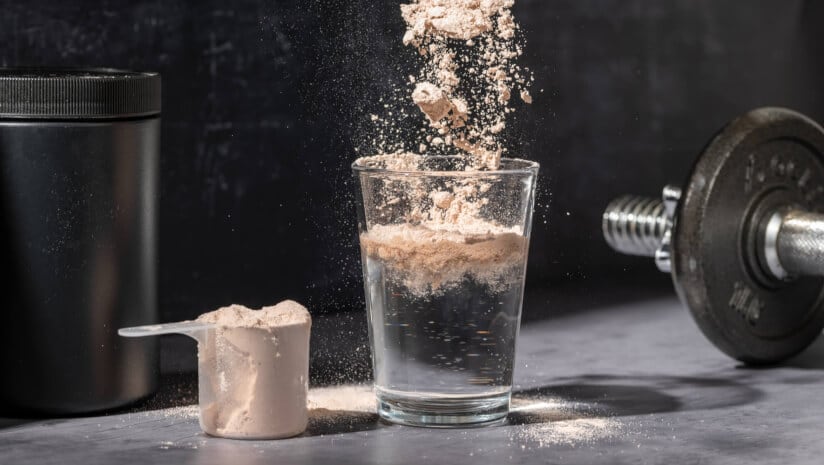That is according to written comments presented by the Natural Products Association last month before the United States International Trade Commission Hearing on Nonfat Milk Solids Competitiveness for the United States and Other Major Suppliers.
At the request of the U.S. Trade Representative, the USITC instituted an investigation under section 332(g) of the Tariff Act of 1930 to produce a report on the global competitiveness of the U.S. nonfat milk solids industry.
“Regulatory changes, such as those associated with the United States-Mexico-Canada Agreement in North America, directly impact the ability of supplement companies to maintain reliable ingredient sourcing, which is vital for ensuring continuity in both domestic and export product lines,” the NPA wrote. “Additionally, the growing consumer demand for transparency, sustainability and enhanced safety in supplements has placed further pressure on ingredient suppliers to deliver verifiable, high-grade nonfat milk solids fit for a health-focused market.”
What are nonfat milk solids?
Milk is approximately 87% water and 13% solids. As it comes from the cow, the solids portion of milk contains approximately 3.7% fat and 9% solids-not-fat, according to University of Maryland research. The solids-not-fat portion is made up of protein (primarily casein and lactalbumin), carbohydrates (primarily lactose) and minerals (including calcium and phosphorus).
The global nonfat milk solids market reached $10.5 to 12.5 billion in 2024, projected to grow to $15.2 to 18.7 billion by 2033. This represents a compound annual growth rate of 4.8 to 6.59%, driven significantly by increasing demand from the dietary supplement sector, according to NPA.
Nonfat milk solids are critical ingredients for a variety of supplements including whey protein supplements. Expanding interest in sport nutrition has increased demand for whey protein concentrates and isolates, NPA stated.
The size of the whey protein market ranges from $5 to $10 billion, but experts predict the market will double in the next decade.
Nonfat milk solids are also important for dairy-based probiotic supplements which use the solids as fermentation substrates and carriers for beneficial bacteria. Although demand for the solids is greater for whey protein than probiotics, supply chain reliability is necessary for probiotics.
“Globally, the dietary supplement industry’s competitiveness is strongly linked to its ability to source nonfat milk solids with consistent quality, functional performance and traceable supply chains,” NPA stated. “However, high input and regulatory costs, periodic price volatility, and supply chain disruptions may constrain its competitiveness, particularly when compared with Oceania suppliers. In the European Union, supplement producers benefit from a wide variety of ingredient options, but complex regulations and higher costs can affect both agility and profitability in our sector.”
Colostrum supplements are another area of concern. Colostrum, the first milk produced by mammals after birth, has immunoglobulins and growth factors that cannot be replicated through synthetic alternatives.
According to data from market research firm SPINS, the VMS market demonstrates overall growth with a total of $1.70 billion across the whey protein, probiotics and colostrum markets, representing a 5.73% increase in dollar sales and 7.32% growth in units sold year-over-year.
Reshoring
Whether it is nonfat milk solids or other supplement ingredients, supporting manufacturing in the United States would provide supply chain stability, according to NPA. The organization said stability would reduce lead times, optimize inventory management, enhance crisis preparedness and create two to three additional jobs in supporting industries.
“These jobs span a wide range of areas, including logistics, packaging, quality control, equipment services, ingredient processing, regulatory compliance, marketing and research and development,” Kyle Turk, vice president, government affairs, NPA, told NutraIngredients. “As production capacity returns to the United States, demand also increases for skilled labor, such as mechanics, electricians and machine operators, as well as other high-skilled professionals in supply chain management, food safety and manufacturing engineering.”
For the dietary supplement industry, the capital investment required to reshore is significant, Turk added. Building or upgrading facilities to meet FDA and GMP standards, as well as installing spray dryers, evaporators and controlled cleanroom environments, can require tens of millions of dollars.
However, Turk said, “reshoring incentives in the dietary supplement industry offer a compelling opportunity to boost domestic manufacturing, which is a top priority for [the Trump] administration, unlocking substantial economic benefits.”

